1. Overview
Park Jin is a prominent South Korean diplomat and politician who has significantly shaped the nation's foreign policy and political landscape. A four-term member of the National Assembly, he served as the 40th Minister of Foreign Affairs under the Yoon Suk Yeol administration. His career is marked by a transition from a distinguished diplomatic background to a leading role in conservative politics, where he influenced key legislative decisions such as the ratification of the United States-Korea Free Trade Agreement and the passage of the North Korean Human Rights Act. As Foreign Minister, he navigated complex international relations, including South Korea's controversial stance on the Israel-Hamas War and the Nagorno-Karabakh conflict. His public life has also seen various controversies, including allegations of classified information leaks and debates over his political funding, which have drawn scrutiny regarding transparency and ethical conduct in public service.
2. Early Life and Education
Park Jin's early life and extensive academic journey laid the foundation for his distinguished career in diplomacy and politics.
2.1. Early Life and Family
Park Jin (박진Pak JinKorean) was born on September 16, 1956, in Jongno District, Seoul, South Korea. His family roots trace back to North Korea; his father hailed from North Hamgyong Province and his mother from Pukchong County, South Hamgyong Province. His father, a medical doctor, established the Park Nae-gwa Clinic in Myeongnyun-dong, Seoul, after relocating to the South during the 1.4 Retreat of the Korean War. Park Jin is married to Cho Yoon-hee, and they have one son and one daughter. He is a Christian.
2.2. Education
Park Jin's academic journey began at Eunseok Elementary School in Seoul. He later attended Kyungil Middle School and Namdaemun Middle School, transferring between them before passing a high school entrance equivalency examination. He subsequently graduated from Kyunggi High School. For his higher education, he attended Seoul National University, where he earned both a Bachelor of Laws and a Master of Laws degree. Furthering his studies abroad, he obtained a Master of Public Administration from Harvard Kennedy School in 1985 and a Doctor of Philosophy in Political Science from University of Oxford in 1993. He also completed an LL.M. at New York University Law School and passed the New York State Bar Examination. From March 1999 to February 2002, he served as a Research Professor at the Institute of East and West Studies at Yonsei University.
3. Diplomatic Career
Park Jin's career as a diplomat provided him with a profound understanding of international relations, which later informed his political endeavors.
3.1. Entry into Foreign Service and Early Career
Park Jin successfully passed the 11th Foreign Affairs Examination in August 1977, marking his entry into the foreign service. He began his career as an officer in the Ministry of Foreign Affairs in November 1977. From 1980 to 1983, he fulfilled his mandatory military service as a naval officer in the Republic of Korea Navy, achieving the rank of Lieutenant JG (정위JungwiKorean).
3.2. Overseas Research and Fellowships
Recognized for his potential, Park Jin was selected for the seventh term of state-funded international studies in 1983. This enabled him to pursue advanced academic and research opportunities abroad, significantly broadening his global perspective. He served as a foreign researcher at the University of Tokyo, Komaba Campus in Japan from 1987 to 1989. Following this, he was a research fellow at King's College London from 1989 to 1990 and subsequently served as an Assistant Professor of Political Science at the University of Newcastle upon Tyne from 1990 to 1993. In a later period of his career, he continued his international academic engagement as a Global Fellow at the Woodrow Wilson International Center for Scholars in 2014. From March 2013 to May 2020, he held an endowed chair professorship at the Graduate School of International and Area Studies at Hankuk University of Foreign Studies.
4. Political Career
Park Jin's transition from diplomacy to politics saw him become a prominent figure in the National Assembly and within major political parties, where he championed key legislative initiatives.
4.1. Entry into Politics
Park Jin transitioned into politics, leveraging his diplomatic expertise within the presidential office. He served as the Presidential Press Secretary from May 1993 to July 1996 and as the Political Secretary from July 1996 to March 1998 during the Kim Young-sam administration. During this period, he also acted as President Kim Young-sam's interpreter from July 1993 to February 1998. After his service in the presidential office, he worked as an advisor at Kim & Chang in October 1998. His formal entry into party politics came in August 2001, when he became a special assistant to Lee Hoi-chang, then president of the Grand National Party (GNP).
4.2. National Assembly Service
During his multiple terms, Park Jin represented various constituencies and was instrumental in significant legislative work, including major foreign policy and human rights acts.
4.2.1. Constituencies and Election Results
Park Jin's parliamentary career began with his election as a member of the 16th National Assembly in a by-election for Jongno District in Seoul on August 8, 2002, securing 50.3% of the votes. He succeeded Roh Moo-hyun in this seat. He was re-elected for the 17th National Assembly in Jongno District in the general election on April 15, 2004, with 42.81% of the votes. He secured his third term in the 18th National Assembly, again representing Jongno District, in the general election on April 9, 2008, with 48.43% of the votes. After a hiatus, he returned to the National Assembly for his fourth term as a member of the 21st National Assembly, representing Gangnam B in Seoul, in the general election on April 15, 2020, winning with 50.94% of the votes, succeeding Jeon Hyun-hee. In the 22nd National Assembly election in 2024, he ran in Seodaemun B in Seoul but was unsuccessful, receiving 42.37% of the votes. His successor in the Gangnam B constituency was Park Soo-min, and his successor in the Jongno constituency was Chung Sye-kyun.
| Election Year | Assembly Term | Constituency | Party | Votes (%) | Rank | Result |
|---|---|---|---|---|---|---|
| 2002 (by-election) | 16th | Jongno District | Grand National Party | 23,300 (50.3%) | 1st | Elected |
| 2004 | 17th | Jongno District | Grand National Party | 37,431 (42.81%) | 1st | Re-elected |
| 2008 | 18th | Jongno District | Grand National Party | 34,113 (48.43%) | 1st | Re-elected |
| 2020 | 21st | Gangnam B | Future United Party | 51,762 (50.94%) | 1st | Re-elected |
| 2024 | 22nd | Seodaemun B | People Power Party | 42,059 (42.37%) | 2nd | Unsuccessful |
4.2.2. Key Legislative Work
During his tenure in the National Assembly, Park Jin held various significant legislative responsibilities. He served on the Science, Technology, Information and Communication Committee during the latter half of the 16th National Assembly (August 2002 - May 2004). In the 17th National Assembly, he was a floor leader for the National Defense Committee during the first half (June 2004 - May 2006) and a member of the Unified Foreign Affairs and Trade Committee and the Intelligence Committee during the latter half (June 2006 - May 2008). He also served on the Special Committee for Countermeasures against China's Distortion of Goguryeo History (June 2005 - May 2006). In June 2004, he became the Chairman of the Disabled Basketball Association.
As Chairman of the Foreign Affairs, Trade, and Unification Committee of the 18th National Assembly from August 2008 to August 2010, he played a pivotal role in the ratification of the United States-Korea Free Trade Agreement and the passage of the North Korean Human Rights Act. These legislative achievements were central to South Korea's foreign policy and human rights agenda. He also served on the Knowledge Economy Committee during the latter half of the 18th National Assembly (June 2010 - May 2012). In 2008, as the head of the Korea-U.S. Congressional Diplomatic Association, he visited the United States and met with Joe Biden, who was then the chairman of the United States Senate Committee on Foreign Relations. During the 21st National Assembly, he served on the Foreign Affairs and Unification Committee (June 2020 - May 2022) and was a member of the Budget and Accounts Special Committee for both the first and second halves (August 2021 - May 2024).
4.3. Party Leadership Roles
Throughout his political career, Park Jin held numerous influential positions within his political parties, contributing to their policy direction and public communication. He served as a co-spokesman for the Grand National Party (GNP) from July 2003 to March 2004. He chaired the GNP's International Committee from July 2004 to February 2005, and again from September 2007 to June 2008. In 2006, he also served as the Chairman of the GNP's Seoul Metropolitan City Branch. From December 2007 to February 2008, he was the Executive Secretary (member) of the Foreign Affairs, Unification, and Security Subcommittee of the 17th Presidential Transition Committee. In September 2004, he was appointed Vice Chairman of the International Democratic Union. From 2004 to 2017, he served as President of the Korea Britain Society.
Following the merger of conservative parties, he became Chairman of the Special Committee on Diplomacy & Security for the Future United Party (a predecessor of the People Power Party) in June 2020, a role he continued in the People Power Party (PPP) from September 2020 to June 2021. He was also a member of the People's Companion Subcommittee of the Weak and Disadvantaged Companion Committee in October 2020. He co-chaired the Parliamentary Diplomacy Forum on the United States from September 2020 to December 2022. Additionally, he served as a co-chairman of the Future Policy Research Association and the Global Diplomacy and Security Forum from July 2020 to May 2024. He was also a member of the National Assembly's World Korean Economic Forum. From February 2017 to February 2020, he served as Chairman of the Korea-America Association. Since January 2017, he has been an advisory member of the Korea-US Alliance Foundation. In 2015, he became the Chairman of the Asia Future Research Institute.
In the lead-up to the 2021 by-election, he was a co-vice chairman of the Seoul Companion Committee for the PPP's Central Election Countermeasures Committee and a co-chairman of the election committee for Oh Se-hoon's Seoul Mayoral campaign (March-April 2021). From July 2021 to May 2022, he chaired the PPP's Seoul Metropolitan City Advisory Committee. For the 20th Presidential Election, he served as a co-chairman of the Yoon Suk-yeol Presidential Campaign Headquarters (October-November 2021) and as Chairman of the Global Vision Committee within the PPP's Election Countermeasures Committee (January-March 2022). He also led the General Election Committee for Seoul.
From March to May 2022, he headed the ROK-US Policy Consultation Delegation for the 20th Presidential Transition Committee. Currently, he serves as an advisory member of the Council for the Promotion of Democracy and is set to become a visiting professor at the Korea Advanced Institute of Science and Technology Graduate School of Science and Technology Policy from January 2025.
5. Minister of Foreign Affairs
Park Jin's tenure as the 40th Minister of Foreign Affairs was a period of significant diplomatic engagement and policy formulation, marked by efforts to strengthen alliances and navigate complex global challenges.
5.1. Appointment and Tenure
In April 2022, Park Jin was nominated by President-elect Yoon Suk Yeol to serve as the 40th Minister of Foreign Affairs. His appointment was officially confirmed on May 12, 2022. He succeeded Chung Eui-yong in this role. He served in this capacity until January 10, 2024, when he was succeeded by Cho Tae-yul.
5.2. Major Diplomatic Activities and Policies
As Foreign Minister, Park Jin undertook numerous diplomatic activities and oversaw key foreign policy initiatives. In July 2022, he visited Japan to attend the memorial service for former Prime Minister Shinzo Abe, where he held a meeting with Japanese Foreign Minister Yoshimasa Hayashi. Both ministers agreed on the importance of an early resolution to the issue of forced labor, though specific action plans remained under discussion.
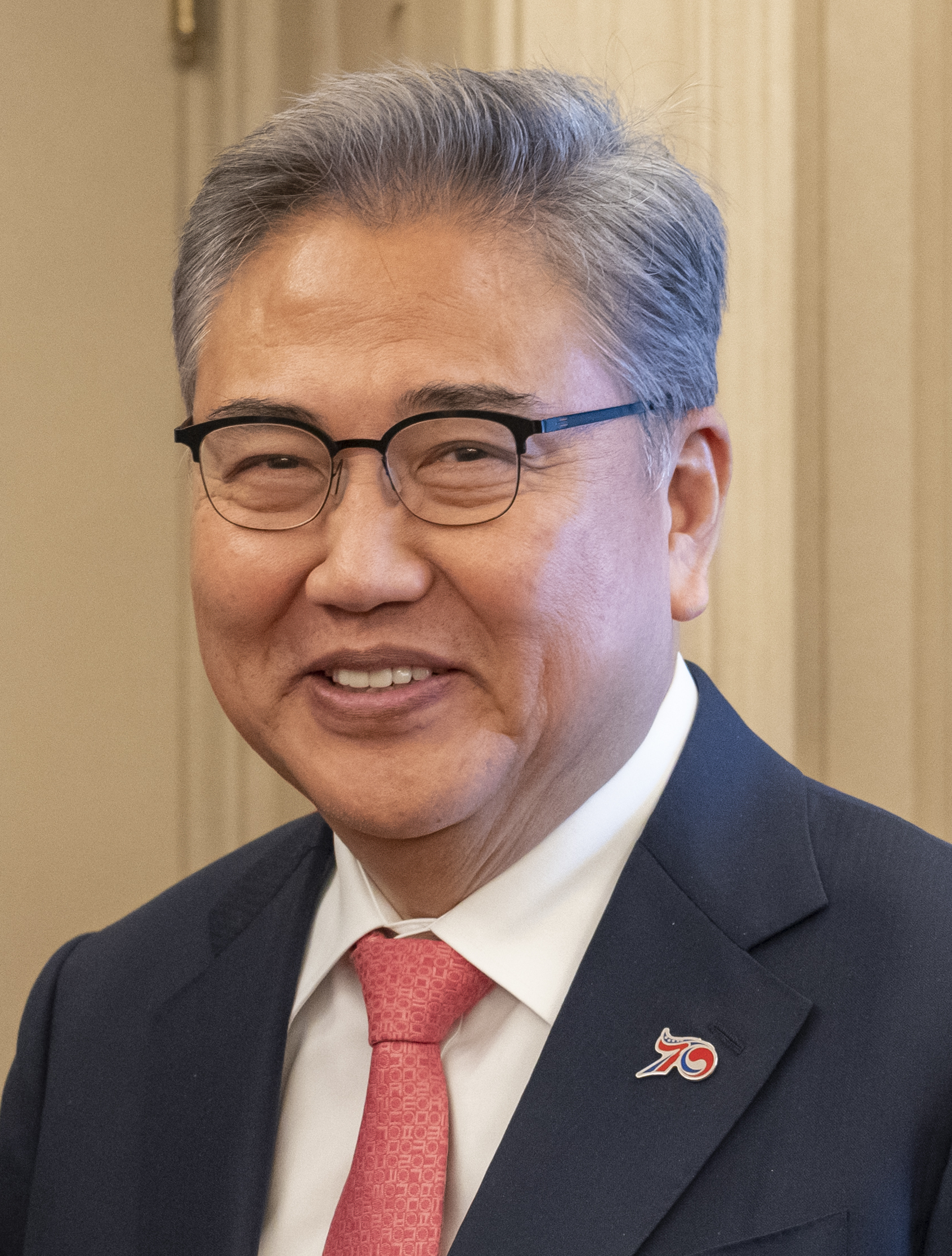
In August 2022, he participated in the ASEAN-related Foreign Ministers' Meeting in Phnom Penh, Cambodia. During this visit, he again met with Foreign Minister Hayashi, and they agreed to accelerate discussions on pending bilateral issues. At this meeting, South Korea requested that Japan remove it from its "white list" of trusted export destinations, a request that Japan declined, asserting it was a separate matter from the forced labor issue.
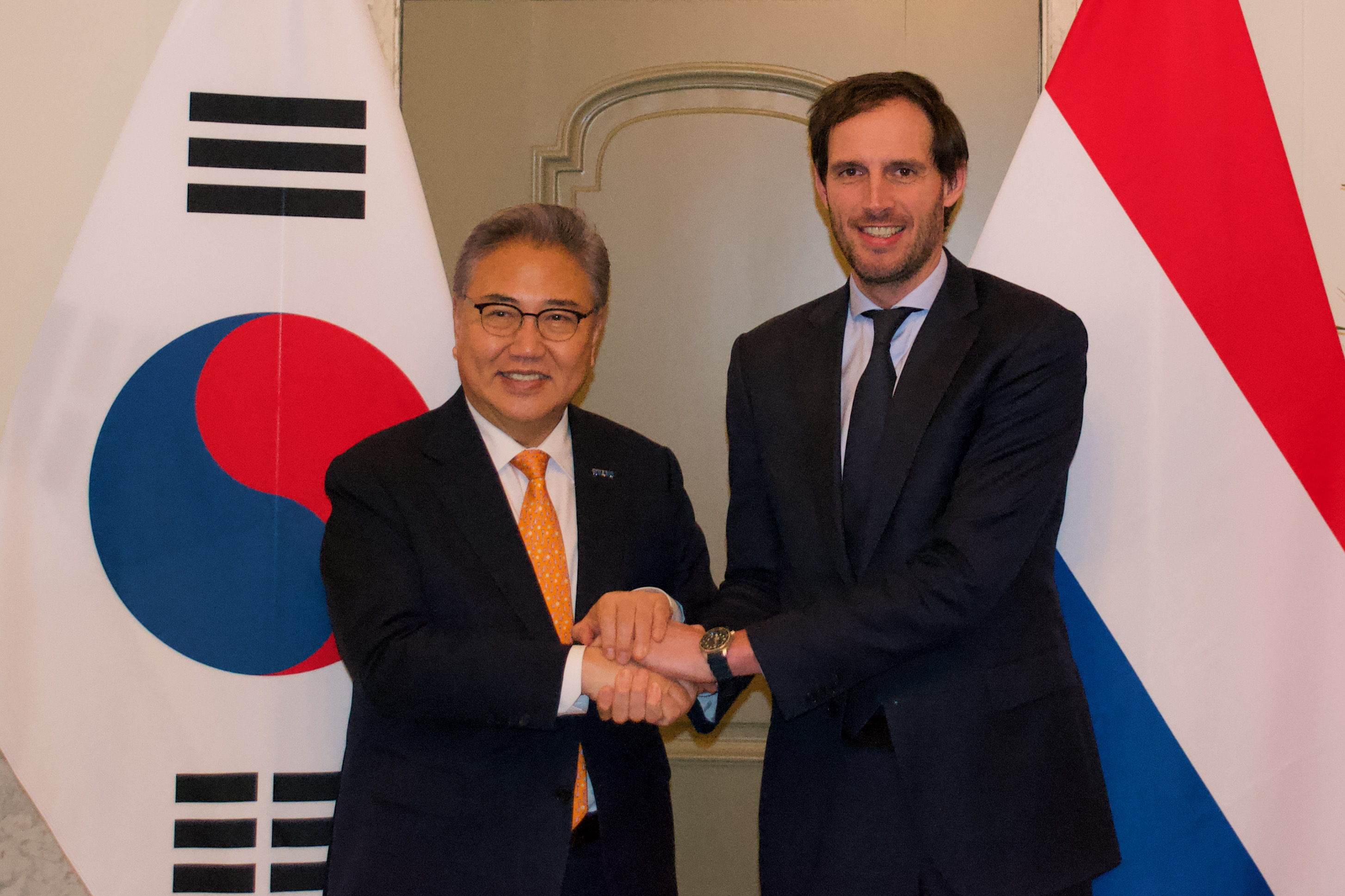
Later in August 2022, Park Jin visited China, holding talks with Chinese Foreign Minister Wang Yi in Qingdao. Amid heightened US-China tensions following Nancy Pelosi's 2022 visit to Taiwan, China urged South Korea not to align too closely with the US-led semiconductor supply chain and to limit the operation of the THAAD missile defense system. Park Jin countered by stating that the "Chip 4" initiative was not intended to exclude China and that the THAAD issue was not subject to discussion.
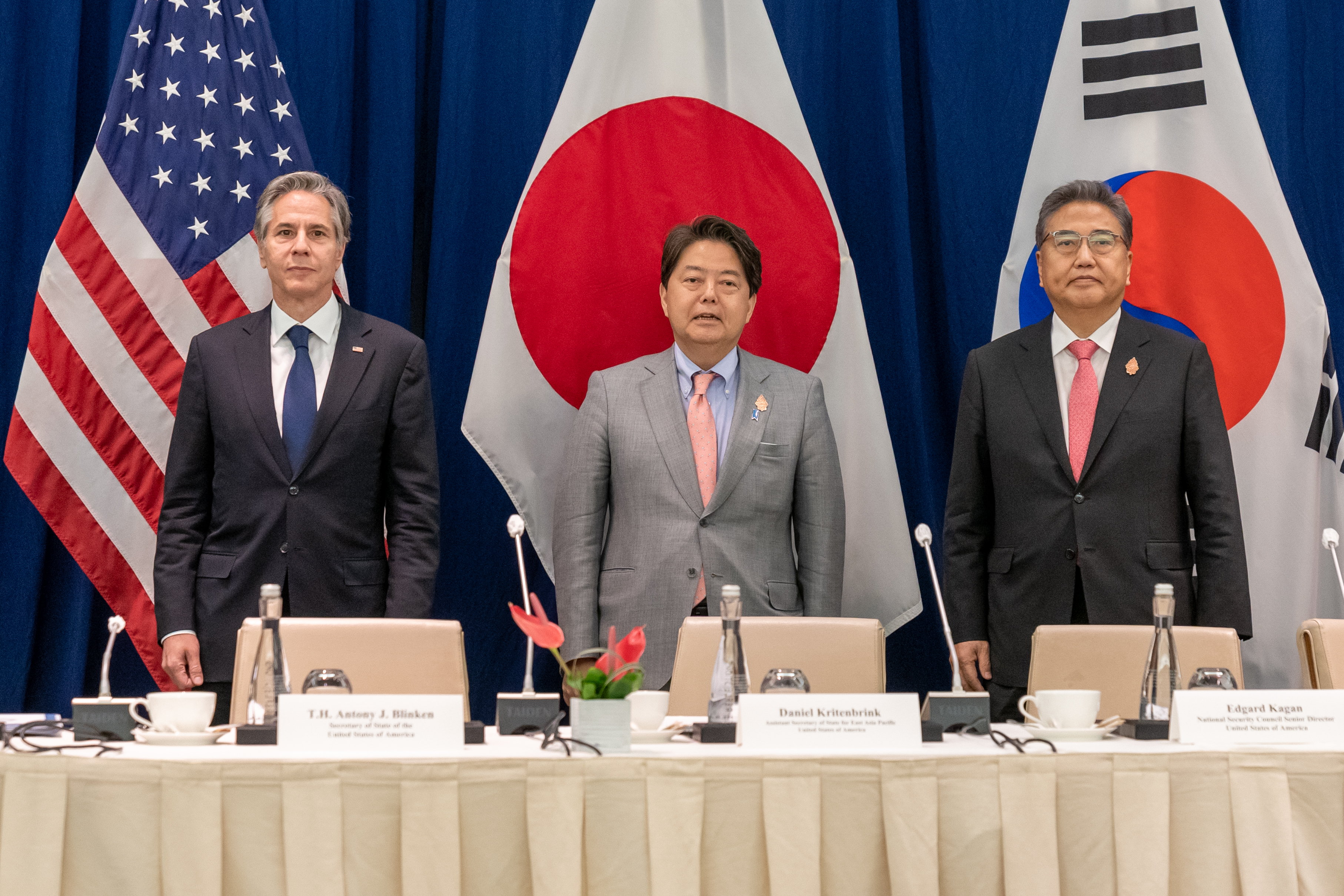
During his tenure, Park Jin also presided over South Korea's support for Israel and Azerbaijan during the Israel-Hamas War and the 2023 Azerbaijani offensive in Nagorno-Karabakh, respectively. This support drew criticism due to accusations of genocide and ethnic cleansing against both Israel and Azerbaijan during these conflicts, raising questions about South Korea's human rights stance in its foreign policy.
5.3. International Reception and Evaluation
Park Jin's performance as Foreign Minister received mixed reactions. On September 29, 2022, the National Assembly passed a motion recommending his dismissal as Foreign Minister. This action, supported by 168 out of 170 members present (with the People Power Party boycotting the vote), was a direct response to what opposition parties termed a "diplomatic disaster" during President Yoon Suk Yeol's overseas visits to the United Kingdom, United States, and Canada. The criticism centered on perceived diplomatic missteps and a lack of tangible outcomes from these high-profile engagements. However, President Yoon Suk Yeol rejected the dismissal recommendation on September 30, 2022, expressing continued confidence in Park Jin's leadership.
6. Political Stance and Philosophy
Park Jin's political and diplomatic viewpoints are characterized by a strong emphasis on national security, traditional alliances, and a pragmatic approach to international relations, though some of his views have drawn criticism regarding democratic values.
He has consistently advocated for a robust national defense. In September 2005, he proposed strengthening the South Korean Navy's submarine capabilities specifically for the defense of Dokdo, a territory disputed with Japan. He also championed parliamentary visits to Dokdo, emphasizing its symbolic importance for national sovereignty. He personally visited Dokdo on April 18, 2010, as Chairman of the National Assembly's Foreign Affairs, Trade, and Unification Committee, alongside National Assembly Speaker Kim Hyong-o.
Regarding democratic processes, a WikiLeaks cable from June 18, 2008, reported that Park Jin told a US Department of Defense official that "South Korea has too much democracy" in the context of the widespread candlelight protests against US beef imports. This remark, reflecting a conservative perspective on civic engagement, drew criticism for potentially downplaying the importance of public expression and democratic participation in national policy-making.
Park Jin's diplomatic philosophy also embraces multilateral engagement. In May 2022, he delivered an opening address in Spanish at a special forum commemorating the 60th anniversary of diplomatic relations between Korea and Latin America, demonstrating his commitment to expanding South Korea's diplomatic reach.
7. Controversies and Criticisms
Throughout his public service career, Park Jin has faced several controversies and criticisms, ranging from allegations of information leaks to issues concerning political funding and family employment.
7.1. Leakage of Classified Information and Media Relations Controversy
In October 2004, prior to a parliamentary audit related to national defense, Park Jin faced significant criticism for allegedly leaking classified military information to the press. The leaked documents reportedly contained specific data on sensitive matters such as ammunition stockpiles. In his defense, Park Jin asserted the public's right to know and argued that excessive secrecy could paradoxically increase public anxiety. Despite his justification, the incident led to a warning from the National Assembly Ethics Special Committee, highlighting concerns about the handling of sensitive national security information.
7.2. Remarks Regarding Sexual Harassment Incident
On March 3, 2006, following a sexual harassment incident involving Choi Yeon-hee, then Secretary-General of the Grand National Party, and a female reporter, Park Jin made controversial remarks that drew widespread condemnation. He publicly attributed the cause of the incident to "bomb shot" culture, a drinking practice, and performed a symbolic act of smashing a glass with a hammer during a press conference at the National Assembly. This action and his accompanying statements were criticized for misrepresenting the core issue of sexual harassment, diverting blame from the perpetrator to alcohol consumption, and distorting the fundamental nature of the incident. Critics argued that his actions reflected a flawed understanding of gender issues and accountability.
7.3. Political Funding and Legal Issues
Park Jin became embroiled in the "Park Yeon-cha Gate" scandal in 2008, a major political corruption case that also involved former President Roh Moo-hyun. He was indicted on charges of illegally receiving political funds, including an alleged 20.00 K USD in illicit donations. In the first trial, he was sentenced to a fine of 3.00 M KRW, a verdict that threatened his parliamentary seat. However, during the appeals trial, he was acquitted of the 20.00 K USD charge. He was still found guilty of receiving borrowed-name sponsorship donations, but his fine was reduced to 800.00 K KRW, which allowed him to narrowly retain his position as a Member of the National Assembly. The legal proceedings surrounding this scandal had a significant impact on his political career and public image.
7.4. Controversy Over Son's Employment
During his Foreign Minister confirmation hearing in 2022, allegations surfaced regarding his son's employment at an overseas online gambling company, where he was reportedly listed as a "founding executive" and "Chief Operating Officer (COO)." Park Jin denied that his son was a founder of the company. He defended his son's employment by stating that he understood the company to be a "game company" that developed and licensed game software, and that playing online poker for cash could be "broadly seen as a game." These remarks drew considerable public debate and criticism, with many accusing him of downplaying the nature of the business and its potential ethical implications, particularly given the legal and social issues associated with online gambling.
7.5. Diplomatic Gaffes and Controversies
Park Jin's tenure as Foreign Minister was not without its share of perceived diplomatic missteps. On April 26, 2022, while arriving at his confirmation hearing preparation office in Seoul, he mistakenly congratulated Vladimir Putin on his re-election instead of Emmanuel Macron when asked by a reporter about the situation. He quickly corrected himself upon realizing his error. This gaffe, though minor, was widely reported and drew some public amusement and criticism. A more significant controversy arose on September 29, 2022, when the National Assembly passed a motion recommending his dismissal as Foreign Minister. This move, initiated by opposition parties, followed what they termed a "diplomatic disaster" during President Yoon Suk Yeol's overseas visits to the UK, US, and Canada. Despite the parliamentary motion, President Yoon rejected the recommendation the following day, reaffirming his confidence in Park Jin.
8. Impact and Legacy
Park Jin's extensive career has left a notable imprint on South Korean politics and foreign policy, influencing both its direction and the discourse surrounding leadership and public service.
8.1. Impact on South Korean Politics and Diplomacy
Park Jin's long tenure as a four-term National Assembly member and his various leadership roles within conservative parties underscore his enduring presence and influence in South Korean politics. His active involvement in key legislative processes, particularly his role in the ratification of the United States-Korea Free Trade Agreement and the passage of the North Korean Human Rights Act, demonstrates his significant impact on the nation's foreign policy and human rights agenda. These actions helped solidify South Korea's economic ties with the U.S. and established a framework for addressing human rights concerns in North Korea.
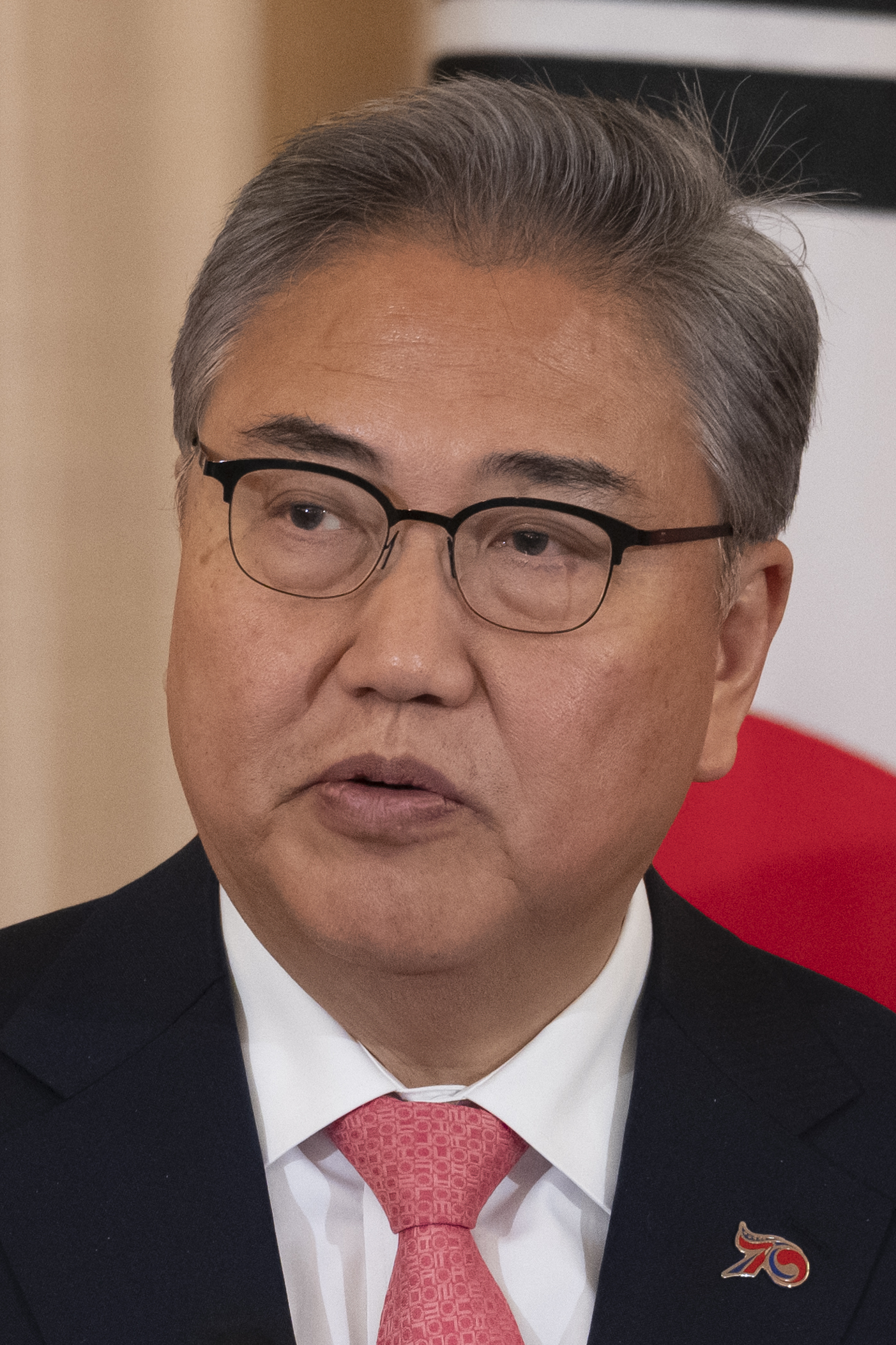
As Foreign Minister, he navigated a complex geopolitical landscape, leading South Korea's diplomatic engagements with major global powers. His controversial support for Israel and Azerbaijan during their respective conflicts, despite accusations of human rights violations, signals a shift in South Korea's diplomatic alignment and a willingness to prioritize strategic partnerships, albeit with ethical considerations. His advocacy for the defense of Dokdo, including his personal visits, highlights a consistent nationalist stance on territorial disputes that has resonated within South Korean political discourse.
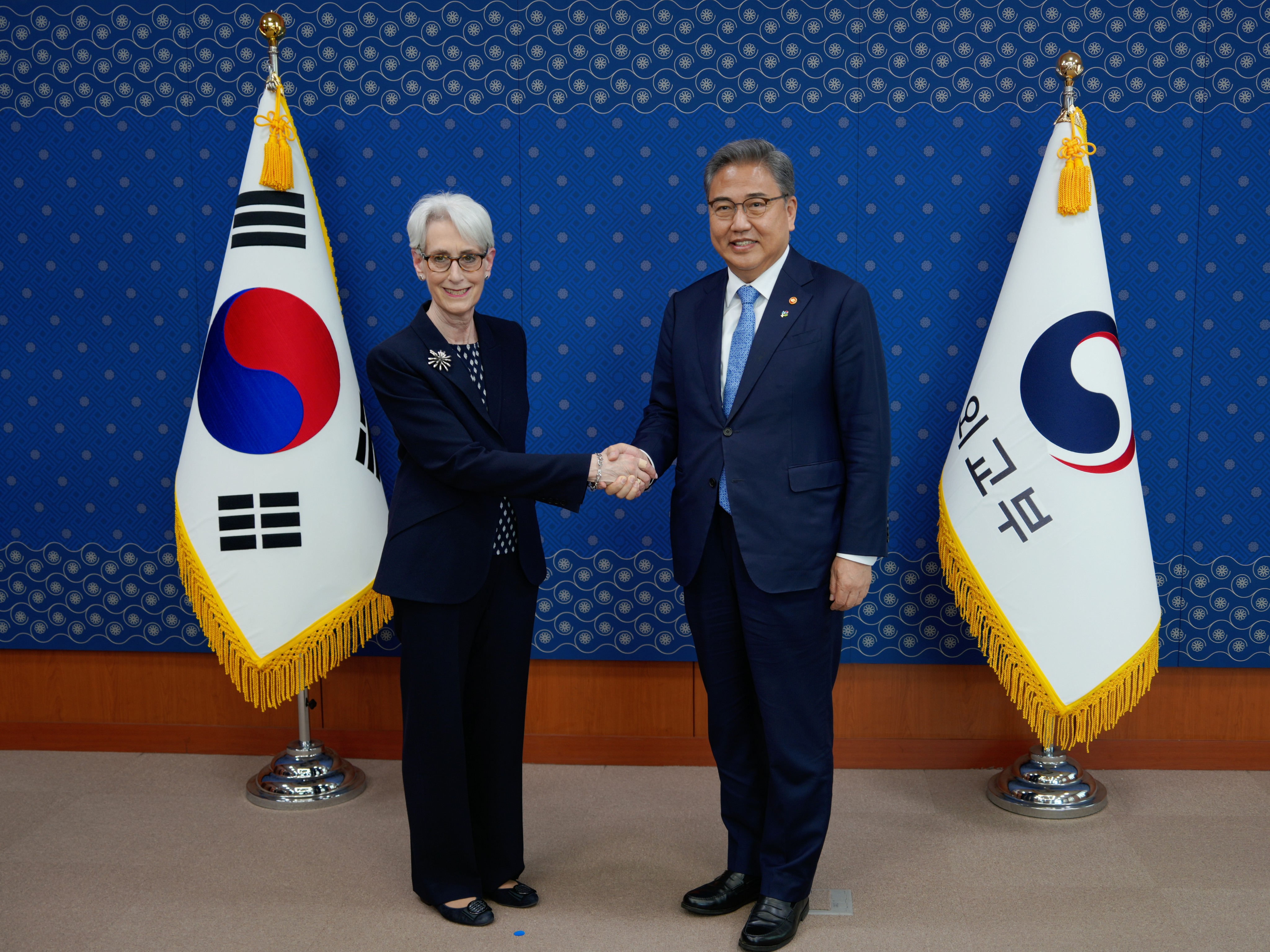
8.2. Influence on Future Generations
Park Jin's career path, beginning with a strong academic background and extensive diplomatic experience before transitioning into politics, could serve as a model for future generations of technocrats considering public service. His involvement in landmark legislative achievements, such as the FTA and the North Korean Human Rights Act, provides significant case studies for aspiring policymakers on how to shape and implement foreign policy.
However, the controversies that marked his career, including allegations of leaking classified information, his handling of a sexual harassment incident, and the "Park Yeon-cha Gate" scandal, also serve as cautionary tales regarding the ethical responsibilities and scrutiny faced by public officials. His remarks, such as the one suggesting "South Korea has too much democracy," have contributed to ongoing debates about the balance between stability and democratic expression, influencing the discourse on democratic values for future leaders. His consistent stance on national sovereignty, particularly regarding Dokdo, may also continue to shape the approach of future generations to sensitive territorial issues.